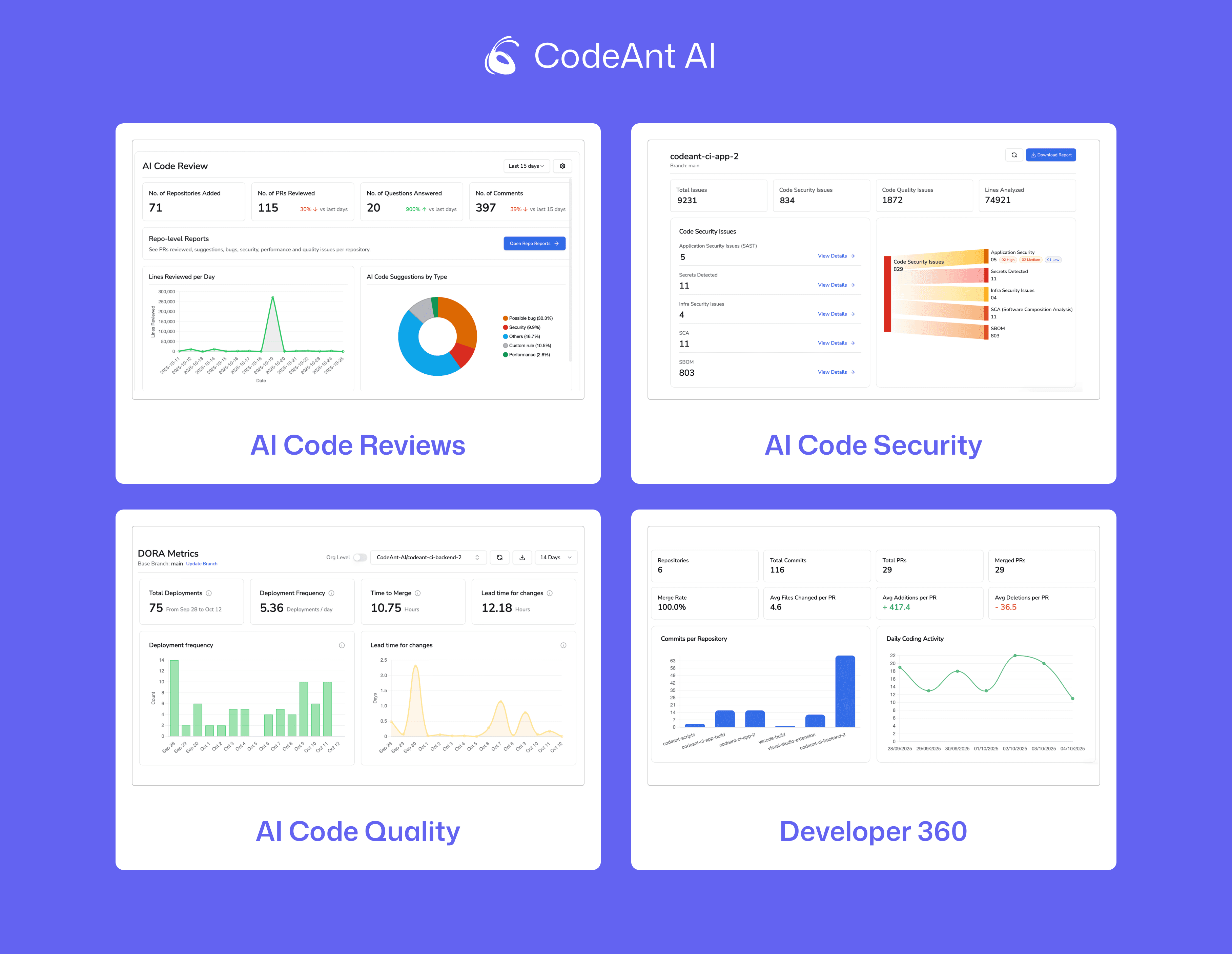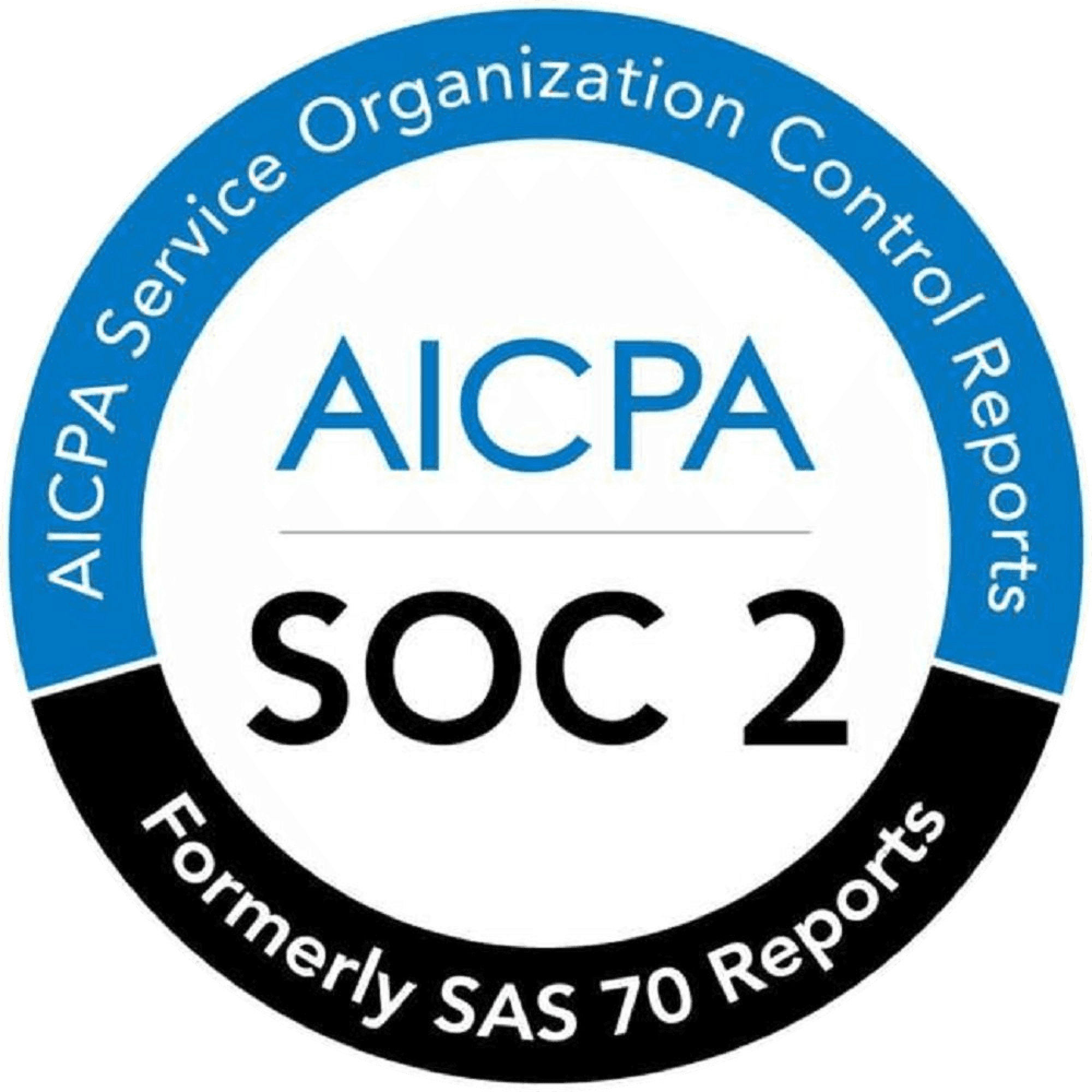AI Code Review
Nov 7, 2025
Code Health As Guardian in the AI Era

Sonali Sood
Founding GTM, CodeAnt AI
AI Writes More Code. But System Health Is the Real Bottleneck.
Engineering leaders didn’t ask for noise…but for velocity + safety + clarity.
Yet today, teams hit an unexpected wall:
AI PR bots dump “nit storms”
Teams drown in comments, not improvements
PR queues clog
Merge latency increases
Security risk surface expands
Architecture drifts
Incident load grows
Developer productivity stagnates
AI absolutely accelerated coding.. but without systemic guardrails, it also accelerated entropy.
The data backs it up: ~78% of developers use AI coding tools, yet two out of three say these tools miss context. Not because AI is bad, but because it's being used narrowly.
Most “AI code review tools” still think their job is to point at code. But modern engineering doesn’t fail at the line, it fails at the system.
That’s why, in the AI-accelerated era, code health is the real control plane.
What Is Code Health (and Why It Now Matters More Than Code Review)
In a world where software velocity keeps climbing, a traditional pull-request-only review system just can’t keep pace. Teams focused only on diff-based reviews end up fixing surface issues but still suffer from creeping tech debt, fragmented standards, security drift, and a slowdown in engineering throughput.
That’s why the shift today isn’t about “better code review.” It’s about sustained code health, protecting architecture, security, and velocity across the entire system, not just the latest PR.
You can also check out these interesting reads:
From Reviewing Diffs → Maintaining Code Health

And that’s precisely where CodeAnt AI’s AI Code Health Solution comes in…

It is an all in unified platform that unifies review, security, and quality into one continuous system. Not just comments. Not just linting. A holistic way to help teams scale without slowing down.

Why the Distinction Matters
Most AI “code review” tools comment on diffs, flag bugs, and suggest style fixes. Useful, but narrow.
CodeAnt.ai's approach looks at the whole picture: architecture, maintainability, security, compliance, and developer productivity.

Why Diff-Only “AI Code Review” Breaks Down
Even advanced PR-centric systems fall short:
Great at syntax, linting, and bug spotting, limited on policy & architecture
Picks up obvious issues, ignores long-term maintainability
Comments, but rarely enforces
High false positives erode trust
No feedback loops → no learning
Common failure modes:
Nitpicking slows merges
No policy awareness → inconsistent quality
No system context → architectural drift
No enforcement → fragile security & compliance
False positives → reviewer fatigue
That said: “AI alone improves productivity ~15%. AI + engineering systems unlock 50–90% gains.”
The Code Health Framework
AI Code health platforms (like CodeAnt AI) don’t just review code, they enforce what healthy code means for your organization from IDE o deployment. It is the system your org builds to enforce:
1) Code Quality Standards + Code Maintainability Metrics
Includes:
readability
modularity
function size limits
DRY / SOLID / low-complexity checks
documentation quality
maintainability index
cyclomatic complexity thresholds
Because simple systems win in velocity and stability.
2) Security + Secrets Scanning + Dependency Hygiene
The modern codebase includes:
app logic
cloud infra
secrets
CI tokens
supply chain components
Security scanning + secret scanning + provenance checks are table stakes.
3) CI Integrity + Provenance + Trust
Healthy systems enforce:
tamper-proof pipelines
build reproducibility
review provenance
change traceability
audit logs
4) Dev Velocity & Policy Gates
Metrics:
time-to-review
time-to-merge
PR size
change failure rate
rework tax
merge queue health
These aren't “nice dashboards,” they predict future stability.
5) Developer Experience, Flow & Context
Healthy code processes reduce:
cognitive load
context switching
noisy PR feedback
reviewer fatigue
tooling friction
Productivity in engineering = flow, not frenzy.
6) Organization Quality Guardrails
This is where code review tools stop, and code health platforms start:
policy-based merge gates
custom org standards
memory of preferred patterns
review consistency
codebase health scores
automated quality regression alerts
AI + Human = Code Health, Not Code Spam
The future is hybrid intelligence:
AI accelerates coding + initial review
Humans govern architecture, quality, safety, clarity, policies
In other words: AI reviews code. Humans protect systems.
Where CodeAnt AI Fits
CodeAnt AI is not "just an AI code review tool." It is an AI code health platform that unifies:
AI code review

Quality analysis

Security scanning

Developer metrics

PR-time enforcement gates
Compliance & policy enforcement
Context-aware review suggestions
One-click fixes
Organization quality memory

Where others comment, CodeAnt AI enforces.
Where others suggest, CodeAnt AI protects.
Where others automate feedback, CodeAnt AI automates improvement.
Because fast teams don’t need more annotations, they need PR-time, policy-based engineering quality.

Becoming a Code Health Guardian: Action Playbook
To ship faster in the AI era, teams can’t rely on comments and reviewer memory. They need codified standards, automated enforcement, and continuous code health signals across every repo and PR.
Step 1: Define Code Health Standards
Codify healthy code patterns, anti-patterns, and architectural rules. Make expectations explicit, not tribal or reviewer-dependent.
Engineering standards & architecture principles
Complexity thresholds
Test expectations & coverage rules
Security posture & secret-handling policy
Naming, documentation, dependency hygiene
Cloud/IaC configuration baselines
Maintainability scoring rubrics
This becomes your org’s definition of “healthy code.”
Step 2: Shift from Comments to Enforcement
Move from subjective review friction → consistent, automated enforcement. Adopt policy-based CI gates tied to:
Maintainability metrics
Security baseline & secrets checks
Review SLAs & fairness
Complexity & duplication thresholds
Dependency risk scoring
Test validation signals
Merge requirements & organizational guardrails
No more “hope it meets standards.” Rules apply before merge, automatically.
Step 3: Adopt AI as Accelerator, Not Oracle
Use AI to automate:
Style & lint checks
Bug pattern spotting
Complexity & duplication detection
Test suggestions
Documentation hints
Security & config scanning
One-click fixes for low-risk issues
AI augments reviewers, but policy + enforcement protects the system.
Step 4: Track Developer Productivity Metrics
Healthy engineering organizations measure flow + maintainability, not just ship velocity.
Monitor:
PR cycle time
Review load distribution
Change failure rate
Rework ratio
Codebase health trends
DORA indicators (lead time, deployment frequency, stability)
Objective signals replace opinion-driven review culture.
Step 5: Coach and Rotate Review Ownership
Code health is a team capability, not a hero function.
Implement:
Shared review responsibility
Rotation across ownership zones
Coaching based on real repo insights
Knowledge distribution across modules
Pair-reviews on complex changes
Every engineer becomes fluent in code health, not just one “gatekeeper.”
Step 6: Use Code Health Platforms
Invest in platforms that:
understand code context
enforce org-defined quality
unify quality + security + compliance
track developer metrics
provide automated enforcement + one-click fixes
Like CodeAnt AI.
Conclusion: The Future Belongs to Code Health Guardians
AI can produce code. AI can review code. But only humans set standards, simplify systems, and protect long-term maintainability.
The craft of engineering was never about typing. It was about clarity, simplicity, systems, constraints, and decisions.
In the AI era: Real power belongs to engineers who guard code health, and use AI as leverage.
Become a Code Health Guardian. Build systems that scale. Ship fast and safely. Adopt tools that enforce quality, not just comment on code.
Explore CodeAnt AI. Lead the future of engineering.














